Disclosure: We may earn money or products from the companies mentioned in this post.
Pet Rabbits are adorable additions to your family whether you are a new pet owner or would like to add to your existing colony. However, responsible pet ownership entails that one is aware of both advantages and disadvantages of getting a pet bunny. Bunnies might be adorable, hopping balls of fluff and cuteness but they also have needs that must be met for them to live comfortably long lives.
In this article, we’ll help you understand what it’s like to have a pet rabbit by running down 10 of the most common advantages and the 10 most common disadvantages of having bunnies in your home.
10 Pros of Having A Pet Bunny
1. Thumps over Barks and Meows (Rabbits are Quiet)
Pet bunnies of course can make noises. They can make thumps whenever they hop around. They are also known to be awake at night so of course, they would make noise while moving around their cage/hutch.
However, making noises is very different from being noisy. With a Pet rabbit, one will not need to worry about sudden barking whenever the UPS mail arrives. There will also be no meowling to get your attention. Aside from the occasional thumps in the night, one will not have to suffer through unnecessary barks and meows when trying to get some beauty sleep.
Pet rabbits, therefore, make perfect pets for introverts that would like to have a quiet companion by their side. With a pet rabbit, you can attend your conference calls at home without worrying that your pet will be heard in the background! Imagine that!
Rabbits are also known to be very docile pets. This makes them perfect for families with small children as they are easier to integrate into the family. They can easily adapt to indoor or outdoor environments.
2. Star of the Show (Rabbits Are Intelligent)
Rabbits might be quiet and gentle but don’t be fooled; bunnies are highly trainable. They can be trained to use a litter box just like cats.
They are also known to be able to do some tricks. In fact, a pet rabbit holds another title in the Guinness Book of Records. Taawi the Turku, from Finland, grabbed the attention of the whole world by successfully doing 20 tricks in one minute. Some of these tricks include giving high fives, nibbling through a string, jumping through an obstacle, spinning, and many more.
This is proof that pet bunnies have strong memories and with a consistent and patient owner will easily become the star of any show.
3. With many breeds, come many personalities (Rabbits have great personalities)
Pet rabbits come in different shapes and sizes. Rabbit sizes can range from dwarf-sized to giant. Within these size categories are several breeds. Having many breeds does not only make sure that future owners have a perfect match for them and their lifestyle but is also proof that with so many choices, come many personalities.
Although generally considered gentle, rabbits have quirks and personalities that are unique to their breed. Certain rabbit breeds for example are well known to be very playful while some rabbit breeds enjoy lazing around and just having the occasional hop.
It is also important to know that while a rabbit’s personality can be predicted by its breed, a rabbit’s personality is also influenced by the kind of environment it grows up in. Therefore, each rabbit is unique and is like no other.
4. Love Live the Bunny (Rabbits have long lives)
With proper care and love, rabbits are known to have long lives. Pet rabbits are known to live from 8 years but can live for as long as twelve years. The life span of a rabbit largely depends on its breed. Large rabbit breeds live a shorter lifespan than their smaller cousins.
Mick, the agouti rabbit from Berwyn, Illinois USA is the current titleholder for the “World’s Oldest Rabbit”. He celebrated his 16th birthday last February 16, 2019. However, the previous owner of this title is a wild rabbit named Flopsy who died after 18 long years of life in Australia.
5. Bunny Space, Literally (Bunnies need less)
Some pets are required to have space for them to frolic and run around to live a comfortable and happy life. This makes them unsuitable for some owners who do not have this luxury. Although rabbits would need some space to exercise, the space they need is considerably less than, say, the space needed for large breeds of dogs.
Bunnies can be let out of their cage and are perfectly happy to have a few minutes to hop around their house, small backyard, or garden. Their cages should also be enough for them to have room for sleeping as well as space to contain a litter box, water and some of their favorite toys.
As a rule of thumb, a rabbit cage should be four times larger than your pet bunny.
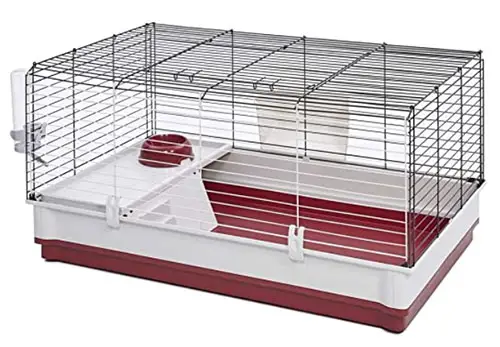
6. Bunny Loves You (Bunnies bond with their family)
Rabbits can and will bond with their owners. It is known that with consistent care bunnies will respond and even recognize their owners. Just like other pets, rabbits who form a strong bond with their families would appreciate cuddle times and pets.
Although the extent of a pet rabbit’s need to cuddle vary from one bunny to another pet rabbits will jump beside their owners and even hang out on their laps
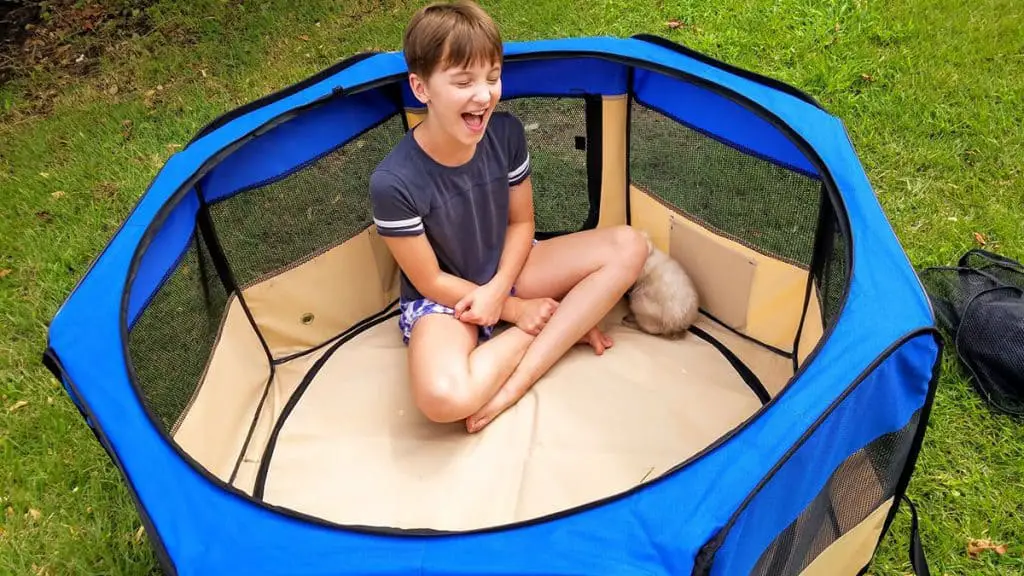
7. Bunny Duties (Bunnies can teach children responsibility)
When it comes to teaching children responsibility, bunnies are perfect. They don’t need the same amount of exercise as dogs so it will be easier for children to spend time with them. They are also cleaner than most pets so parents would not have to worry about their little children ending up smelling like their pets.
Bunnies are also safer for children because they have a gentler and more docile nature.
However, Parents should of course teach their children the gentle and proper way of handling rabbits. Children should learn the proper way of handling rabbits. They should know to avoid pulling or playing with their pet bunny ears and how to carry them gently.
In this way, bunny rabbits will be more comfortable with the little ones of the family and make their integration easier.
8. Bunny Smell (Rabbits are not stinky)
A healthy pet rabbit should not smell. Rabbits in general do not need to be bathed because they do not have a specific body odor. Their poop rarely smells too!
To keep bunnies stink-free make sure that their cages are clean. Bunny urine contains high levels of ammonia because they rarely drink water. This could stink up a cage that could stink up your rabbit but this can also be remedied by cleaning out their houses.
If a pet owner finds out that their pet rabbit stinks and not because they’ve been staying too long in a too dirty cage then it’s time to take the bunny to the vet.
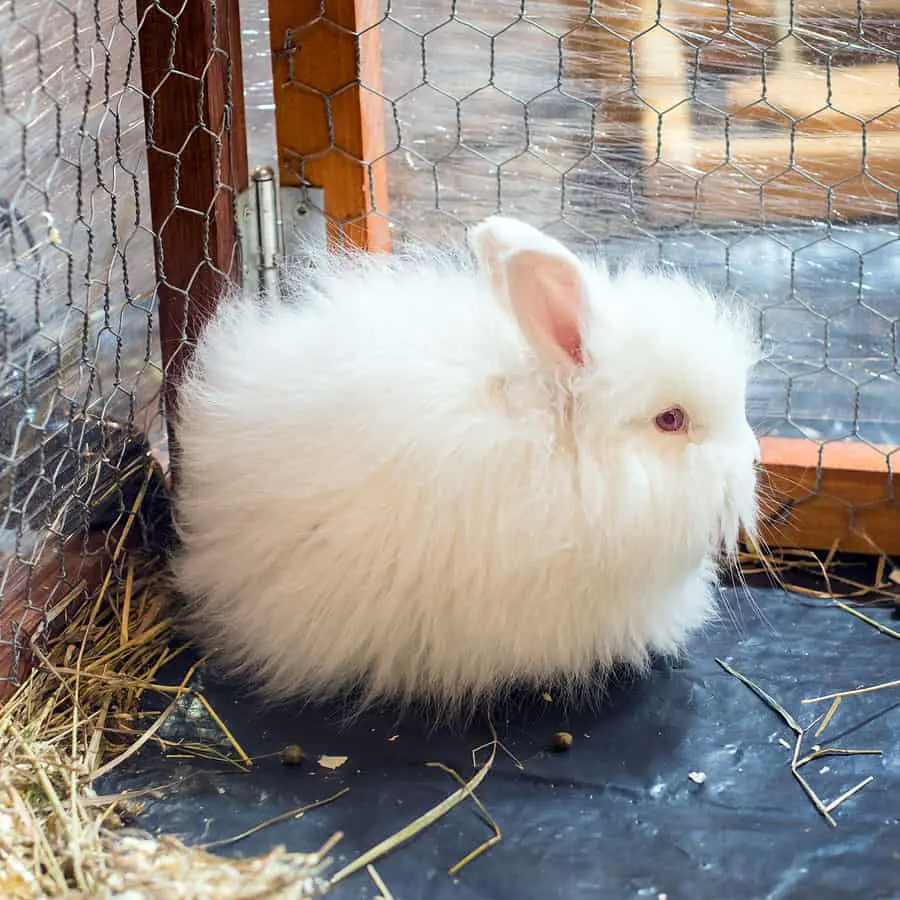
9. Say goodbye to Allergies (Rabbits do not trigger allergies)
People who are allergic to cats and dogs are found to not be allergic to rabbits. This is mainly because allergies from pets are caused by proteins that are in the animal’s saliva. People who are allergic to cats for example are allergic to the proteins that are in the saliva that is passed on to fur when the cats groom themselves.
Since Rabbits are biologically different from cats then there is a probability that a person will not be allergic to rabbits making them more suitable as pets.
10. Bunny Ice breakers
It is undeniable that bunnies are cute. They have been memorialized in cartoons and children’s stories as gentle, fun-loving creatures. In real life, bunnies can be great conversation starters. A person looking to break the ice can start by stating something adorable about themselves and, what is more, adorable than owning one of the fluffiest creatures on earth?
A rabbit owner may even find a fellow rabbit lover in this way! We’ve heard about categories such as dog person or cat person, but we rarely hear about a “Rabbit Person”. We’re sure that being a rabbit lover with the knowledge to show will add to anyone’s social circle.
10 Cons of Having A Pet Bunny
1. Bills, Bills, Bills (Rabbits can be expensive)
There are multiple costs to owning a rabbit. This does not just include the one-time costs of buying or adopting a pet rabbit; there are also ongoing costs for their maintenance. Rabbits can be more expensive to own compared to other pets (e.g. cats)
Rabbits should be spayed or neutered because aside from removing the risks of reproductive cancers, spaying or neutering pet rabbits will also eliminate unwanted hormonal behaviors such as urine spraying, aggression, or mounting.
Quality food is essential to rabbit health as well. They need to be provided with good quality foods to keep their GI tract happy.
2. Two is Better than One (Rabbit live better in pairs)
Rabbits thrive better as part of a pair. In the wild, rabbits are usually part of a group and are known to be sociable animals. Rabbits are also more comfortable having a companion of their species. Pet owners should know to never put two rabbits of the opposite sex that are not spayed/neutered in one cage together.
This fact means that having a rabbit and making sure that they are provided with the most comfortable life possible can be more expensive because having two companion rabbits means having double the cost as well.
The work needed to keep them clean and well-groomed also doubles.
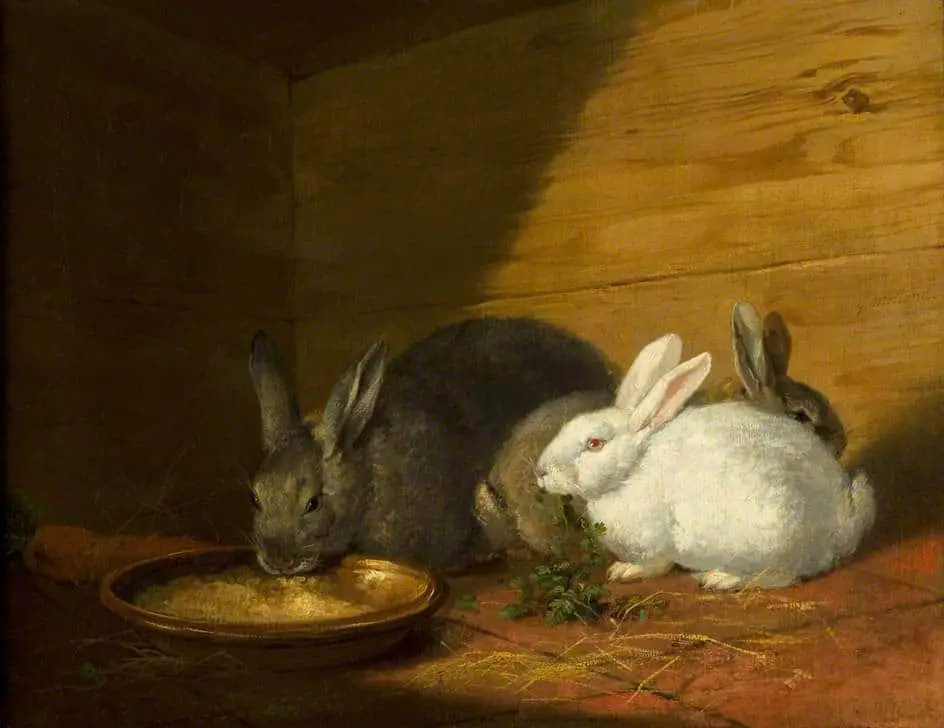
3. Rabbits need time (Rabbits need time to bond)
Rabbits might seem standoffish at first. Others might seem that they have an aversion to being held but this is because rabbits need time to bond with their owners. Just like in any relationship, pet rabbits need to know that their owners can be trusted. Rabbits who are already bonded with a pair will take more time to bond with other family members.
However, bonding with a pet bunny is not impossible. Rabbits will and can trust their owners given enough patience and time. Rabbit lovers should always spend time with their rabbits but make sure that they are not overwhelming their pets with too much affection.
Spending quiet time together is a perfect formula for creating that owner-bunny bond. Reading while having the cage open for your bunny to explore and smell you is usually a good bonding activity. Talking to your bunny also helps and is found to be soothing to the owner. Grooming and teaching bunnies to do tricks will also help form a bond.
4. Grooming Duties (Rabbits need to be groomed)
Although grooming is one activity that helps form a bond between pet and owner, rabbit grooming can be a chore. Depending on the breed of rabbit that you have, rabbits need to be brushed every three days. They also need to be checked for any fleas or mites. Owners should also make sure that they have clear ears, eyes, and nails.
Rabbit dental health is also very important. Owners should check if their pet bunnies have well-kept teeth. High fiber diets of leafy greens and quality hay are enough to promote chewing and to wear the teeth down to avoid overgrowing.
5. Poop, Poop and more Poop (Rabbits poop a lot)
A rabbit’s health is closely connected to its digestive system. They need the quick movement of their digestive tracts to allow them to get the energy that they use. Rabbits are very well known to be able to poop 300 to 800 pellets in a week. In a day, rabbits can poop 100 pellets. That’s a lot of poop!
They also urinate 5 to 8 times a day. Rabbit urine smells, combine this with 100 pellets a day, this could be too much for some people. Vigilance in cleaning their cages is needed to keep a healthy rabbit and a stink-free house.
The video below is a good illustration of how much a rabbit can poop, but it’s also an example of a rabbit that isn’t litter box trained. There is no reason that your bunny should be pooping all over your house like this.
6. Bunny Sitters (Rabbits cannot be left alone for extended periods)
Pet bunnies are unlike dogs and cats that can be left alone for extended periods. Pet owners who find themselves on vacations and could not take their pet rabbits have to be ready to find bunny sitters to help take care of their bunnies.
Rabbits need to be consistently fed with quality food and to be let out of their cage for exercise. Pet sitters should also see to the continuous grooming of the bunnies while the owner is away. Cages and hutches should also be cleaned regularly.
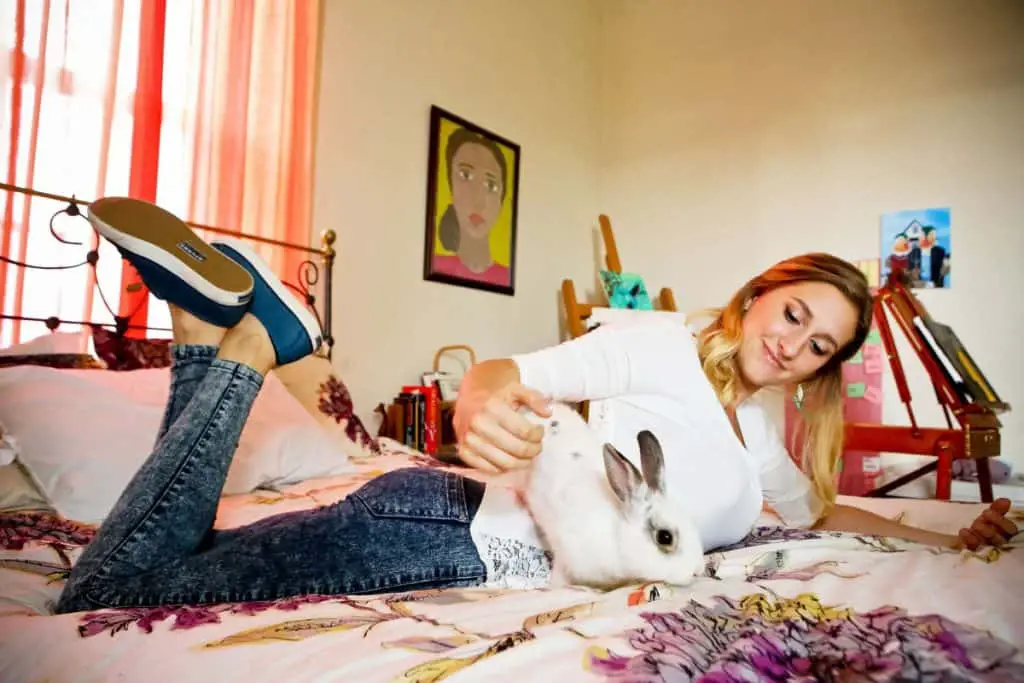
7. Bunny Activities (Rabbits need the exercise)
Rabbits need exercise to stop themselves from getting bored. Although they are generally laid-back pets, they still need to have their daily dose of activities. Just like their wild cousins, rabbits need a space to run and dig. It is a misconception that rabbits do not need exercise and are content to be in their cage the entire day.
Enough exercise for the rabbits can also curb destructive behavior such as chewing.
8. Bunny Doctors, where are you? (Vets can be hard to find)
Local veterinarians can see basic health checks for pet rabbits. However, they are more trained to care for dogs and cats. When it comes to pet rabbits, pet owners might find it more helpful to see a specialist that is trained to specifically care for rabbits.
Veterinarians for exotic pets are usually good candidates for this position.
9. Wreck-it Bunny (Bunnies can be destructive)
Bunnies can chew A LOT. They can resort to destructive behaviors such as chewing through your favorite pieces of clothing. They can also chew through dangerous things such as household wiring. However, this behavior is easily remedied.
Chewing can be a sign of boredom, making sure to get enough exercise for your pet rabbits can correct his behavior. Chewing can also be a behavior caused by hormones and this can be corrected by spaying/neutering.
10. Run, Bunny Run (Rabbits can be hard to introduce to other pets)
In the wild, Rabbits are generally preyed upon by wolves or big cats. These instincts do not go away completely for domesticated pets. It might be a challenge for owners to integrate rabbits into their homes when they already have other pets such as dogs.
Hunting dog breeds have a strong prey drive and might see your pet rabbit as food and not a friend. It is better to integrate these two different pet species early on, puppies who grow up with other pets in the house learn to accept the other animals into their pack.
We hope that this article gives you a perspective on rabbit ownership. The key to responsible pet ownership is working to find the balance between the pros and cons of owning one.
Do you have other advantages to share? Maybe some things you wish you knew before owning a pet bunny? Let us know in the comment section.
~Stacey
